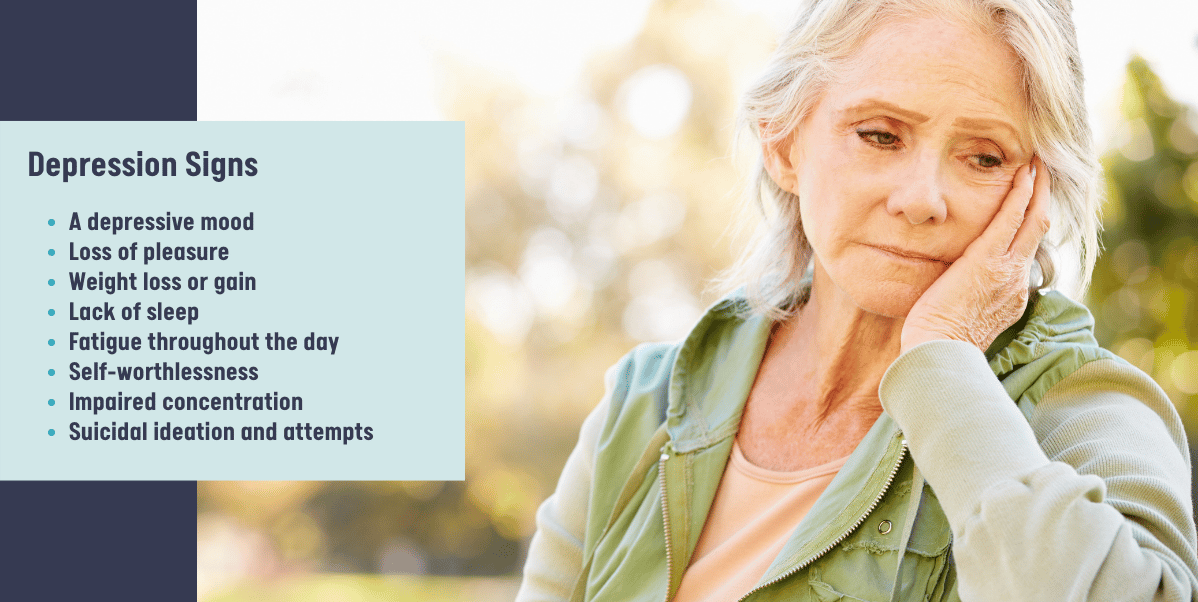
Depression is physically painful. Although the condition is a mood disorder, manifesting primarily as emotional distress and mental anguish, it hurts – like actual physical discomfort. Research shows that the brain registers emotional aches like physical pain – that is why a heartbreak fills like someone ripped out your heart and gut-wrenching pain.
What is Depression?
Depression is a mental condition characterized by persistent sadness and a lack of interest in activities of daily living. The link between depression and the body begins with the chemical imbalance in the brain. The shift favors the activation and continued sustenance of the stress response.
The stress response, also known as anxiety, is a physiological reaction to stress. Short term, the stress response is the body’s defense strategy against physical, emotional, and mental threats. However, cortisol and adrenaline, brain chemicals at the center of a perpetual depressive mood, sustain this negative physiological state, wreaking havoc on your physical health. The two hormones are responsible for most physical symptoms of depression.
Depression Signs
- A depressive mood – persistent sadness, despair, and hopelessness
- Loss of pleasure or interest in any activity, all-day
- Weight loss or gain due to severe appetite changes
- Lack of sleep or feeling sleepy even after a full night’s rest
- Psychomotor agitation or reterdation
- Fatigue throughout the day
- Self-worthlessness and guilt by delusion
- Impaired concentration
- Suicidal ideation and attempts

Depression and Health Issues
Pain
Depression causes severe headaches in the form of chronic headache disorder and recurring migraines. This pain is a consequence of depression sharing the same brain pathways as pain. Additionally, symptoms like anxiety, persistent negative thinking, restlessness, sleeplessness, and behavioral factors like drinking and drug abuse also exacerbate the condition.
People with depression also get muscle, joint, and back pain. Skeletomuscular discomfort is a consequence of the stress response. As the body prepares for fight or flight, it harnesses energy by boosting your breathing, heartbeat rate, and blood circulation to increase oxygen supply and transportation to the brain and muscles. Furthermore, cortisol stimulates the breakdown of stored glycogen into glucose.
The muscles use oxygen as fuel to burn glucose and get energy. The sudden energy surge, also known as the adrenaline rush, causes rapid muscle contraction and relaxation to help you act fast and dodge oncoming traffic or suddenly rescue someone from danger. Unfortunately, with a hyperactive stress response in depression, the constant shaking and muscle spasms can leave you feeling sore and tired.
Digestive Issues
Aside from breaking down glucose, cortisol suppresses other body functions to keep you focused on the threat during a stress response. Cortisol minimizes activity in the digestive system by ensuring the stomach is empty. It induces nausea to let you vomit stomach contents. What does not come out through the mouth goes out as diarrhea. Cortisol can also restrain the bowels by causing constipation.
Long-term exposure to cortisol causes digestive issues like diarrhea, irritable bowel syndrome, constipation, intestinal hernias, and hyperacidity. Ulcerations in the upper digestive tract develop because of constant exposure to corrosive stomach acid.
Suppressed Immune System
Cortisol also suppresses the immune system, leaving you vulnerable to opportunistic infections. The immune system also weakens from appetite suppression, limiting the nutrients the body gets to boost the immune system. The condition worsens because of maladaptive behavior like drinking and drugs, which interfere with nutrient absorption.
Alternatively, depression can increase your appetite while lowering your desire to work out. It can also trigger Emotional or stress feeding any time your anxiety flares, causing you to gain too much weight and increasing your vulnerability to cardiovascular illnesses, diabetes, and certain cancer types.
Cardiovascular Illnesses
Adrenaline is responsible for raising the heartbeat and blood pressure to increase oxygen supply and transportation in the stress response. In depression, repeated cycles of heightened heart palpitations and blood pressure can harden your arteries and lead to heart arrhythmias, high blood pressure, and heart failure.
Remedies for Depression
The best option for treating and managing depression is psychotherapy. In therapy, you will learn thought and emotional regulation, relaxation techniques, and beneficial behaviors that build resilience and foster mental health. Aside from the one-on-one session, your counseling psychologist can use antidepressants to help balance your brain chemicals.
Another safe option for treating major depressive disorder is Transcranial Magnetic Stimulation (TMS). TMS is a safe non-invasive procedure that uses magnetic pulses to balance the brain area responsible for mood regulation. A few treatment sessions reduce the severity of depressive symptoms.


